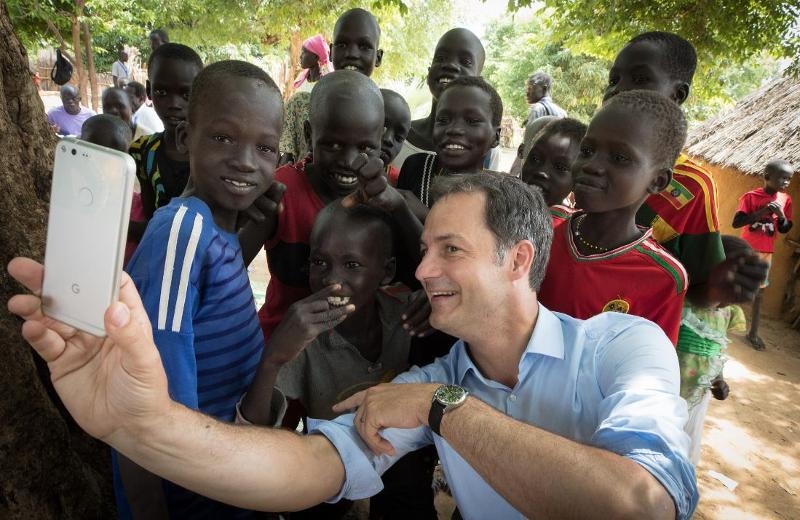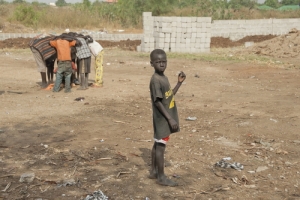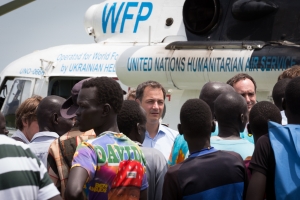Belgian Statement 'Solidarity Summit' on Refugees

Today, Deputy Prime Minister and Minister of Development Cooperation Alexander De Croo spoke on the Uganda Solidarity Summit on refugees. Uganda is experiencing the fastest growing refugee crisis in the world, with over 1.2 million refugees and far-reaching economic and social impact.
Dear Mr President,
Mr Secretary-General,
Excellencies,
Ladies and Gentlemen,
Let me first start by thanking President Museveni and Secretary-General Guterres for convening this Solidarity Summit.
It comes at a moment when we are faced with one of the worst humanitarian crises of our time. At a moment when our humanity is at play.
I want to share three thoughts with you this morning.
First, about solidarity.
The very reason why we are here today. To show solidarity with the millions of people who had to flee their homes because of brutal slaughter, tribal conflict and extreme famine.
But also solidarity with the Ugandan government and the people of Uganda.
Belgium has increased its humanitarian aid to a historic high, with the four famines together with Syria being our focal points. The Belgian citizens, through a fundraising campaign, raised nearly 20 millions euro.And globally as well as in the South Sudanese refugee crisis, the European Union stepping up its efforts as the most important humanitarian donor.
But all these efforts can never be compared to what neighboring countries as Uganda are doing.
Faced with the cry for help of their South Sudanese brothers and sisters they did not look the other way.
Uganda did not seek for excuses not to help.
Uganda did not close its borders or build walls.
Uganda did help.
The Ugandese people did what humans should do: they opened their arms and welcomed the refugees. Often in difficult and challenging circumstances.
A human yet remarkable gesture that should inspire us all.
Second, only delivering humanitarian relief is and cannot be the final answer.
We have to tackle the root causes of this crisis.
This means ending conflict.
Getting around the table.
And making compromises.
Peace does not come automatically.
It requires leadership, hard work and courage. But above all commitment.
In the first place of the South Sudanese political class - government and opposition. There really is no excuse for keeping an entire population in a murderous hold. That was the message I gave to the South Sudanese leaders when I visited the country this week.
But also the region has a role to play. To pressure, to facilitate and to foster real peace.
And of course, we have to tackle impunity and strengthen accountability. The path to sustainable peace depends on breaking the cycle of impunity.
Finally, Belgium has been a partner of development in Uganda since 1995. By focussing on education and health we're well placed to link emergency aid with long term development.
During my visit to the north of Uganda yesterday, I visited Belgian funded skilling projects strengthening the resilience of both South Sudanese refugees and host communities. Given the numerous protracted conflicts in the world, I am convinced this is the way to go.
Thank you for your attention.
Thank you people of Uganda for your hospitality.


